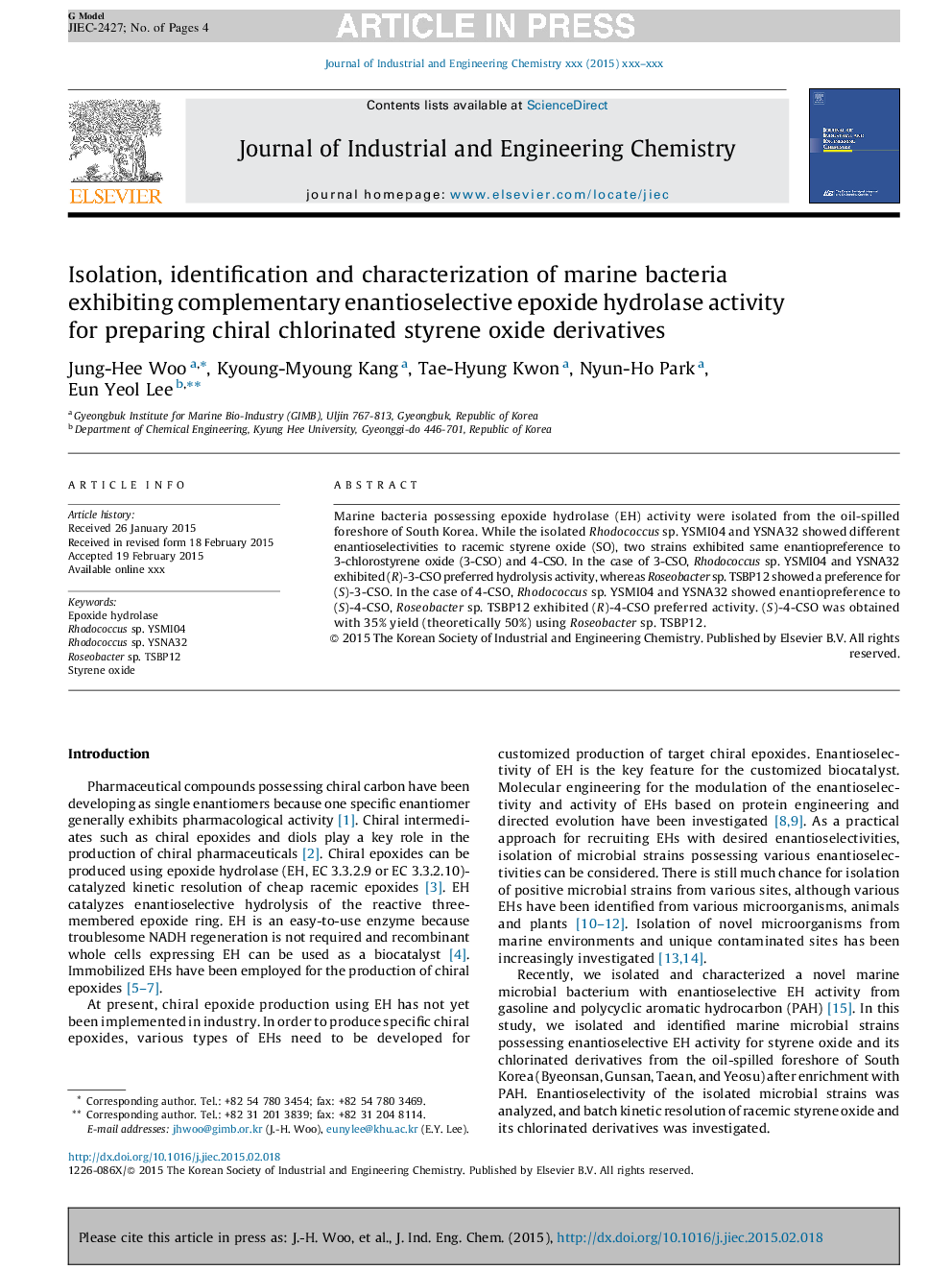| Article ID | Journal | Published Year | Pages | File Type |
|---|---|---|---|---|
| 6669702 | Journal of Industrial and Engineering Chemistry | 2015 | 4 Pages |
Abstract
Marine bacteria possessing epoxide hydrolase (EH) activity were isolated from the oil-spilled foreshore of South Korea. While the isolated Rhodococcus sp. YSMI04 and YSNA32 showed different enantioselectivities to racemic styrene oxide (SO), two strains exhibited same enantiopreference to 3-chlorostyrene oxide (3-CSO) and 4-CSO. In the case of 3-CSO, Rhodococcus sp. YSMI04 and YSNA32 exhibited (R)-3-CSO preferred hydrolysis activity, whereas Roseobacter sp. TSBP12 showed a preference for (S)-3-CSO. In the case of 4-CSO, Rhodococcus sp. YSMI04 and YSNA32 showed enantiopreference to (S)-4-CSO, Roseobacter sp. TSBP12 exhibited (R)-4-CSO preferred activity. (S)-4-CSO was obtained with 35% yield (theoretically 50%) using Roseobacter sp. TSBP12.
Keywords
Related Topics
Physical Sciences and Engineering
Chemical Engineering
Chemical Engineering (General)
Authors
Jung-Hee Woo, Kyoung-Myoung Kang, Tae-Hyung Kwon, Nyun-Ho Park, Eun Yeol Lee,
